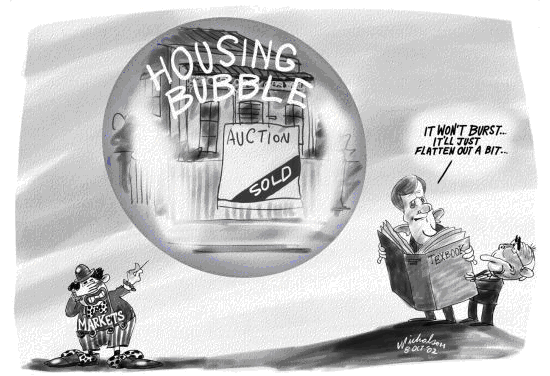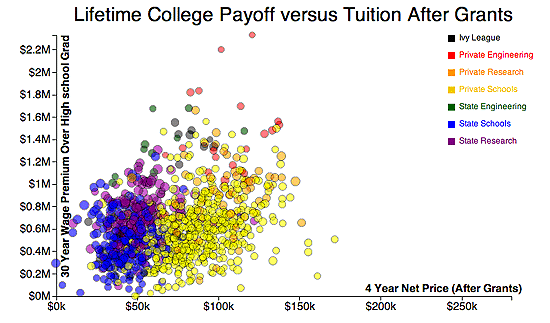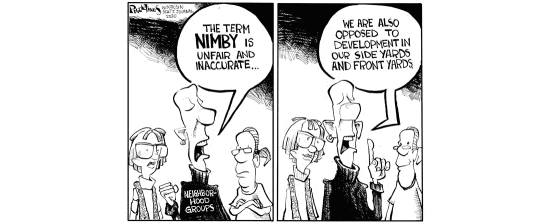
Today's Top 10 is a guest post from Shamubeel Eaqub, the principal economist at the New Zealand Institute of Economic Research. His is the second Top 10 in our new Friday series from a range of different contributors.
As always, we welcome your additions in the comments below or via email to david.chaston@interest.co.nz. And if you're interested in contributing the occasional Top 10 yourself, contact gareth.vaughan@interest.co.nz.
See all previous Top 10s here.

1. Food, fertilisers and minerals the future
The legendary Jeremy Grantham of GMO calls food and scarce minerals as good long-term investments.
Mr Grantham is known as the perma-bear, because he called the internet bubble and the housing bubble. He says that the rising trend in commodity prices over the past decade is a reversal from 100 years of real declines.
I happen to disagree with this Malthusian view. Over the next 100 years we will find alternatives.
In fact rising prices spurs the required investment and innovation to find alternatives. Look at what shale oil is doing to energy prices in America.
Still, read Mr Grantham’s interview in the WSJ. He has called it before.
They [commodity prices] came down for a hundred years by an average of 70 percent, and then starting around 2002, they shot up and basically everything tripled—and I mean, everything…The game has changed. I suspect the game changed because of the ridiculous growth rates in China—such a large country, with 1.3 billion people using 45 percent of the coal used in the world, 50 percent of all the cement and 40 percent of all the copper. I mean these are numbers that you can't keep on rolling along without expecting something to go tilt.
As a side note, I really enjoyed this tit-bit on Aussies and calling a housing bubble, sounds a bit like NZ ;)
If you have … [a conversation about a housing bubble] … in Australia, you have World War III! They hate you. They hate you for years! The idea that you could suggest that they were having a housing bubble.
Rising Commodities: Total return over 10 years (2003-2013)

2. The African century?
Africa has been hailed as the investment promise of the future. But it has been interrupted by war, politics, and weak social and economic infrastructure. Will this be Africa’s century?
If your view of Africa is gleaned from the horrors of war and famine on TV, you are missing the other Africa, where the people are young and optimistic, and the landscape breath-taking.
Africa is a huge continent. It has a land mass that is larger than most people realise, because of the tricks of cartography (map making). Its recent growth hasn’t been just about resources, even if Blood Diamonds is a great movie.
Africa has most of the world’s uncultivated cropland – which will make it strategically important in the future. China is investing heavily in Africa. Its population is young, growing, urbanising and is increasingly educated. It is leapfrogging legacy technology, moving straight to mobile phones for example.
Check out Jonathan Berman’s 7 reasons why Africa’s time is now on the Harvard Business Review.
Africa’s economy is growing faster than the economies of all other continents. About a third of the 54 African countries are seeing annual GDP growth of more than 6%. But this isn’t just about diamonds and oil: Only 24% of the growth from 2000 to 2008 was attributable to natural resources.

3. RBA: No housing bubble
The RBA’s assistant governor, Dr Malcolm Edey, says Australian house prices are not in a bubble and the doom-mongers need to keep things in perspective.
Dr Edey’s is reported in the AFR:
“There is no doubt [house prices have risen] but we have to keep in perspective. House prices have risen at a rate similar or level to growth in household income,” he said.
“But we shouldn’t be rushing to reach for the bubble terminology every time house prices are above average because you will be unrealistically alarmist,” he said.
True, house prices are reacting to recently low interest rates. But it is also undeniable that Australian house prices are very high relative to incomes and rents, households are massively indebted, banks hold huge amounts of their book in mortgages and the Australian economy is slowing. It seems a little scary to anyone who doesn’t buy into ‘house prices only ever go up’ mantra. Read Leith van Onselen at Macrobusiness for a rebuttal.

4. UK’s 40 year mortgage slaves
In the UK many new borrowers are increasing borrowing terms from the traditional 25 years up to 40 years. LSL figures reported in The Guardian say:
Hard-pressed first-time buyers are abandoning traditional 25-year mortgages and opting for much longer repayment terms – some as long as 40 years – so they can afford bigger loans, in the latest indicator of Britain's emerging property bubble.
Financial liberalization allowed massive growth in borrowing. We have had loads of innovations, including lower deposits, longer repayment terms and how much of your income goes to mortgages. More recently it was CDOs and other financial shenanigans that combined with fraud led to the GFC. Five years on, it seems we have learnt nothing and banks still hold sway:
After the financial crisis in the UK, the Financial Services Authority proposed strict affordability tests that would make lenders assess home buyers on their ability to repay over 25 years, but dropped the idea last October after lobbying by the banks.
They would say that, wouldn’t they?
Mortgage lenders argue that improved longevity, combined with higher house prices, make extended mortgage terms more sense. But critics point out that the average age of a first time buyer has risen markedly in recent years, and that terms of 30 or 35 years will leave some facing hefty mortgage payments well into retirement.

5. $1m meager retirement
A$1m in retirement will buy you a no-frills retired lifestyle. To live a comfortable retirement you need A$1.6m for a man and A$1.8m for a woman at retirement, according to Deloitte estimates:
To achieve a comfortable retirement, today's 30-year-olds need to make additional contributions to super beyond the employer contribution, with men putting in another of 5.4 per cent on top of their current rate and women adding an extra 7.5 per cent.
Because we are living older the cost of living in retirement is rising. In Australia there are large contributions to a compulsory super scheme, which will see a 30 year old on the average income of $60,000 save $1m by the time they turn 65. Deloitte is suggesting that people need to put even more away. How many Kiwis are saving enough for retirement?
In the US, many cities are now bankrupt because they haven’t prefunded their pension liabilities. If a future NZ government breaks the universal super promise, will it be unfair or because of pig-headed politics that refuses to make the small necessary steps (increases in the retirement age and indexation to CPI rather than wages)?

6. Fees cost dear
Standardised KiwiSaver fees will be published in mid-October, according to MBIE.
That’s a very good thing and I can’t wait. The difference between low and high fees can mean up to a 20% difference in a retiree's standard of living. This is vital information for the 2.1 million KiwiSavers who put $3.1b into managed funds in FY2013 (see statistics here).
There seems to be an unhealthy obsession with short-term returns of KiwiSaver funds, apparent in ‘league tables’ in the weekend papers. There is reliable international evidence that a successful investment manager today is unlikely to be consistently successful. It can happen, like the legendary Warren Buffet of Berkshire Hathaway. But that’s why he is legendary.
The most important difference tends to be fees. William Sharpe (of the Sharpe ratio fame) wrote an excellent article, a little technical, in the Financial Analyst Journal:
Recent regulatory changes have brought a renewed focus on the impact of investment expenses on investors’ financial well-being. The author offers methods for calculating relative terminal wealth levels for those investing in funds with different expense ratios. Under plausible conditions, a person saving for retirement who chooses low-cost investments could have a standard of living throughout retirement more than 20% higher than that of a comparable investor in high-cost investments.

7. Inequality: invest in the young
Income inequality is a topic that stirs up a lot of emotions. And not surprisingly there are very partisan views on the ‘right’ solution. The left wants taxes on the rich, the rich want smaller government, and on the hard right many deny there is even a problem.
Income inequality is too important and complex to be solved on partisan black and white lines. The Economist newspaper makes a compelling case that secular forces could further deepen the income and divide and we need a sprinkling of left and right solutions: make fat cats leaner and create better opportunities for the underprivileged, particularly by investing in the young. We spend far too little time to talk about the quality of education – which we know is absolutely vital to reduce inequity of opportunity.
Many of the underlying causes of the growing gap between rich and poor—fast technological change and the rapid globalisation of the economy—are deep-seated and likely to persist.
Government policy matters:
Inequality is not impervious to government policy, but higher marginal tax rates are not the only or the best way to address it. A two-part agenda drawing on ideas from both left and right, aimed at reducing boondoggles for the affluent and increasing investment in the young, could achieve a lot.

8. Is college worth it?
One of the salves for inequality is education. But education is becoming more expensive and in some countries the returns may be smaller than others. For example, in New Zealand the returns to education are not as high as some other rich countries – but that’s another discussion.
According to the OECD, a think tank funded by rich countries, the US has some of the highest returns to education. But the cost of education there is rising rapidly, even faster than healthcare! With it there is rising delinquency of student borrowing.
A look at the US data by Alex Mayyasi on priceonomics.com suggests college is still worth the investment:
…the [research on] financial value of a college degree all concurs: A bachelor’s degree is a sound investment whose value is growing. The extra income graduates earn compared to high school graduates more than compensates for the high cost.

9. Fear the boom not the bust
For an alternative take on the economy, I like reading the material from the Mises Institute, an Austrian Economics think-tank. It is consistently gloomy and essentially says: stop tampering with the money supply or each new boom is sowing the seeds of the next bust.
I enjoy how Frank Hollenbeck on mises.org draws on history to paint a vivid, if alternative, picture of how we should fear the super-easy monetary reflation following the GFC. Because price signals are so distorted, the economy is on an uneven keel. When the bust comes it will be more painful than it needs to be.
By late 1936, The Fed started to get worried, and in March 1937 the chairman of the Fed, Martin Eccles, said “[r]ecovery is now under way, but if it were permitted to become a runaway boom it would be followed by another disastrous crash.”
The bust was written in the cards. It could not be avoided, just postponed. It is not the bust, but the boom that should be feared. The bust was of short duration, and could have been much worse if the Fed had not pulled the punch bowl then and there.

10. Affordable housing, but not in my ‘hood
There is much talk of affordable housing and the plight of the first home buyer, both here and in Australia. In both cases planning rules and NIMBYism makes smaller, cheaper and/or multi-unit homes hard to supply.
If we truly want to have affordable housing, a number if things have to happen. Reining back debt reliance and increasing supply of the right type and the right place.
The planning, regulatory and objections processes favour the incumbent and not the first home buyer. Gethin Davison’s report at AHURI finds:
…opposition to affordable housing development tends to be greater in neighbourhoods that are affluent or aspirational, and where there is already anger and/or fear in the community. Opposition to affordable housing proposals is usually most fierce and most widespread early on, usually subsiding as time passes and disappearing once a decision has been made.

50 Comments
#1 So infinite growth is fine on a finate planet,
"I happen to disagree with this Malthusian view. Over the next 100 years we will find alternatives."
hmmm
regards
Perhaps the vague anticipated alternative energy source is to boil down baby boomers for their valuable hydrocarbons.
Makes me think of carbon garboil from Margaret Atwood's The Year of the Flood!
Chuckle.
Shamubeel was taught by people not much advanced on witchdoctors. "At a certain price, an alternative will always be found".
"Seacond verse, same as the first"
"Repeat"
Was self-justifying untl it wasn't. What is scary, is that there are a lot who think (?) like this, and truly believe their shyte. Fracking is a classic example of the 'next best option' in the sequentially worsening list of 'what's left'.
What a pity economists aren't required to study the real world as part of the course. No idea that fracking takes more energy to get than Jed Clampetts stuff. Shake your head in wonder.
Shamubeel - a question: Is the Earth flat? If not, it's finite.
Oil prices plateaued at ~$30 a barrel for 20 years from 1980 to 2000, from where they have steadily climbed to now being consistently over $100 a barrel. This supports something of a Malthusian view of the world, even if it may take a fair while to play out, and if reasonable alternatives will be found for some things. Reality is likely to be somewhere between PDK's darkest predictions and Shamubeel's apparent rosy without any evidence view.
The developed world (including China) with stable or even declining populations, and significant spare food and other capacity looks in okay shape. The parts of the developing world with still high population growth and pretty rocky economies appear to have a real risk of a Malthusian outcome causing real stress in the next decade or so.
#5: that's an odd comment Shamubeel. You start the item with concern that people aren't going to be able to afford a comfortable retirement and conclude with recommendations that would slash the value of NZS and therefore mean that people are even less able to fund a comfortable retirement.
I guess the noted levels of required savings for a comfortable retirement are irrelevant for most of us.
For instance: In 2007 a HNWIwere defined as having investable finance in excess of US$1 million.(Capgemini 2007)[1][2] Read more
The same outfit has released it's latest wealth report with the following observation:
Investable wealth of the world’s HNWIs rebounded in 2012, growing by 10% to reach a record high of $46.2 trillion after declining 1.7%in 2011. One million individuals joined the global HNWI population, which reached 12 million, reflecting an increase of 9.2%. Read more
It would seem the sunshine investment years from 1982 to 2007 resulted in few reaching Deloitte's, obviously unattainable for the majority, retirement capital needs.
A$1m in retirement will buy you a no-frills retired lifestyle. To live a comfortable retirement you need A$1.6m for a man and A$1.8m for a woman at retirement, according to Deloitte estimates:
It's not clear whether Deloitte's estimate includes the value of one's house; and it certainly doesn't include the retirement wealth that all New Zealanders have, ie their lifetime entitlement to NZS which is equivalent at age 65 to a lump sum of about three or four hundred thousand dollars.
My point though was that Shamubeel goes about his argument in an odd way. The facts he presents at the beginning are the facts that you'd present if you wanted to make the case for pre-funding retirement income, either collectively through the NZ Superfund or individually through compulsory private saving. Getting from the Deloittes findings to the case for reduced NZS entitlements leaves out several steps and a handbrake turn.
I happen to disagree with this Malthusian view. Over the next 100 years we will find alternatives.
Of course you would.... and I agree we'll find alternatives as we won't be able to keep exploiting the existing resources perpetually and will be forced to use alternatives at some point. However, I doubt these all of these alternative resources will prove to be as useful or functional as what we have access to now, if anything they we be stepping backwards down the resource ladder (and not by choice).
In fact rising prices spurs the required investment and innovation to find alternatives. Look at what shale oil is doing to energy prices in America.
West texas crude is currently $103.03, so not a lot I guess!
Its a typical economist/financial theoretical and very obsolete view of the world. Lets not discuss this with engineers, scientists, oil geologists, lets just pray the afore mentioned despite telling us no will dig us out of the doo doo if we give them enough $s......
Such a outlook isnt based on anything more than, blind belief.
As some wag said, those who study history are doomed to watch those that do not repeat the mistakes.
Not to mention the maths of it....
I can see now why civilisations fail...
of course I'll also fully expect that when the engineers and scientists fail that they will be the ones "hanged" and not the ppl who said they should be able to with enough money.
regards
Interesting that the return on Brent Crude is 310% but Gasoline only 151%. Does this mean that refineries returns have halved?
Another point, I have just returned from a few days in Hawaii and i'd like an explanation as to why the price of petrol (motor and avgas) is around half that of here (NZ)? It has to be shipped in for both destinations, the crude is still sold at auction, so are the US refineries that much more efficient than anywhere else in the world, or are the Oil companies lieing to us (again)?
Tax on petrol here is 64.2 cents a litre plus GST of approximately 30 cents a litre. So 94cents a litre, or just under half the cost, is tax.
As far as I can tell from a quick Google petrol tax in Hawaii is ~USD0.60 per gallon (being no doubt an American gallon which is 4 litres) so 15 cents a litre, or roughly 18 NZ cents.
Petrol prices seem to vary considerably in Hawaii from roughly US$4.10 a gallon, or NZ$1.23 per litre, to $4.50 a gallon, or NZ$1.35 a litre. See here. Average say $1.29.
Add the tax differential above of 76 cents and you get to $2.05 a litre. Here 91 octane is $2.09 in Auckland. So the margins do appear higher here, (by 4 cents a litre) but maybe there are transport and refining differences that take some of that margin. I understand the oil companies here try and statndardise pricing into the main ports at least. And I can get the 4 cents a litre by shopping at the supermarket. So maybe they are the same here and there.
For his own part, Muir-Wood puts his money where his mouth is. “I personally wouldn’t invest in beachfront property anymore,”
http://blogs.smithsonianmag.com/science/2013/09/how-the-insurance-indus…
Latest IPCC is out tomorrow BTW. Yep and I think we'll see un-insurable properties where they are on flood plains as well. No mortgage possible on quite a % of NZ residential property would be an eye opener.
Farmers insuring for crop loss? nope no longer available. Its going to be interesting to watch as the farmers reps who deny climate change face up to their members being unable to get insurance....cant blame that on an academic conspiracy or fraud now can we.
https://www.genevaassociation.org/media/616661/ga2013-warming_of_the_oc…
"In some high-risk areas, ocean warming and climate change threaten the
insurability of catastrophe risk more generally. To avoid market failure, the
coupling of risk transfer and risk mitigation becomes essential."
"On a more general level, there are growing concerns about the indirect
impact of changes in the risk landscape which question the sustainability of the
catastrophe risk business in many countries. For some regions, the combination
of rising risk levels and a heavily regulated market might lead to decreasing
commercial viability."
regards
...of course our farmers don't need crop isurance, because they have a gummit who will step in...kiwifruit disease, drought relief and of course irrigation and dam subsidys ( Ruataniwha Dam beng the latest scandal)..........
What total nonsense - "Hard-pressed first-time buyers are abandoning traditional 25-year mortgages". Traditional was a 15 year amortising mortgage at a maximum of 2.5 times the earnings of the main income earner. Those was the rules before the bankers went on their plunderfest.
I did see a piece suggesting there had been a move to 30 year termin the last 5~10 years. More recently a 40 year term is an option. In "my youth" in the UK 25 years was I think considered normal....under that not very common so 15 was the normal here in the 80s and 90s?
regards
Maybe we should get the 600 who will be out of a job soon....to invest in beachfront houses, here in Aukland..
http://nz.finance.yahoo.com/news/irn-amcup-fastest-172445608--spt.html
http://nz.finance.yahoo.com/news/irn-housing-evenw-193010264--spt.html
Or alternatively.
Or read the comments, not the article. Be better informed.
http://www.macrobusiness.com.au/2013/09/rba-plays-down-housing-bubble-r…
One definitely has to wonder what qualifications are required to choose central bank governors and their assistants. I guess breathing is one of of them.
Unless crude oil prices drop back to $20 a barrel you would have to say Grantham is more convincing than Eaqub regarding finding alternatives to conventional oil.
Not sure I follow you....
All the alternatives Ive seen are at the $90US a barrel equiv and far more (ignoring EROEI for a moment) and more....if we went back to $20 then a) alternatives wouldnt be developed, you would be losing over $70 a barrel and new fields wouldnt be developed either as they are also around $90. Begs the Q what happens when new fields are $105? clearly no one will develop unless they see a return and who can pay $120+? Also it takes 5~8 years to develop a field....I cant see the wait being smooth and peaceful.
regards
If there was abundant alternatives then the price would be lower and if alternatives are scrarce then prices are higher. That is what Grantham is saying and the facts seem to indicate we are in the latter scenerio. You would seem to be agreeing with him. Elsewhere Grantham says that with declining population growth and reducing solar panel prices, the population to energy equation might balance out. He says it is a race...
Im not so sure on declining population growth when in fact we need a reduction....race, yes indeed, however, That really means we have to start reducing now, or actually 20 years ago....
a) We have 5 maybe 10 years on this plateau. ie I have not seen anyone "sensible" suggest past 2018.
b) the longer on it the likelyhood is of a bigger and bigger initial drop off it back to trend. That could be 10% maybe 18%, that signals chaos....
c) There is about 1/2 left, sounds heaps except at this alf way point we are $95 marginal cost and our economy cant seem t pay for much more ie above $120....that tends to suggest 1/3 or maybe 1/4 will never be extracted, we wont be able to afford to remove it.
Up until now we have seen a decline on pop growth due to education etc, but that curve is actually a U, at least so far,
http://physics.ucsd.edu/do-the-math/2013/09/the-real-population-problem/
That has more detail...
regards
The economic clock is usually a good indicator of what is going to happen.
No. It tracks the lemmings, but not the cliff.
PDK - I wouldn't make assumptions that the lemmings as you call them are at the top of the cliff. They could well be at the bottom ready for the climb. Playing pied piper with a blindfold on isn't my style.
How apt, so,
a) there is a cliff,
b) you dont know where they are or where the cliff is, but are happy to proceed towards it.
c) You proceed to the cliff's edge, you just dont know how long but are happy to do so.
d) It may not think its your style, but your style it is.
regards
China in Africa, yeah well, time to start getting used to a world without elephants and rhinos. You might even manage to shed a tear for them in an unguarded moment
China in Africa, yeah well, time to start getting used to a world without elephants and rhinos. You might even manage to shed a tear for them in an unguarded moment
Para 8
if I were a student today, once I had finished my degree(s) I would file for bankruptcy and get rid of my student debt. Seven? years out of one's life at that stage would enable one to get ahead especially as you could not get any credit to further encumber yourself. You may say that is wrong and once I would have agreed with you but now days it is the system that is "red in tooth and claw" and you can only say to the young you have to use it before it devours you.
However there is an indication that if you dont get into a decent paying job within a few years of getting your degree you will never get a good career and job(s).
On top of that I expect things to get tougher in terms of debt avoidance, wouldnt be surprised if debtors prisons make a comeback.
regards
The term used in the USA is the 'Higher Ed Bubble'.
One only has to survey the courses still on offer at our own publicly funded tertiaries, to see such gems as this from CPIT:
Circus Skills IICourse code: CACS600 Credits: 55.0
To provide opportunities for students to undertake specialised circus skills training in selected areas drawn from
acrobatics, aerials, equilibristics and juggling."
or this
History & Comparative Studies 1Course code: CAHC501 Credits: 5.0
To provide an historical overview of circus, the fool, and physical performance. To engage students in investigation, dialogues and presentation.
Now I'm not a Circus Denier, but just how many of these fools do we actually need?
Wow, mind boggling.....conclusion, too many ppl specialising too much.
We do however, need an endless supply of clowns to replace the Parliamentarians when all is said and done.
Talk is cheap. They are not.
Steven - Too many people specialising too much keeps people dumb. The Clark led Labour Government was the one who pushed hard for specialisation.....WHY?
Specialisation does not broaden a persons skills and understanding of the wider issues and impacts. Specialisation within the Public Sector is particularly dangerous and shouldn't be confused with Specialisation in Private Enterprise.
The vagaries of the English language when a word can cause positive or negative impacts.
"Higher Education Bubble" Yes. These days one of the common features of third world countries is a mass of unemployed university graduates.
not even third world.....
regards
I think my maths holds up far better than your predictions of winning....maybe move to san fransico? bound to see priced double there now, eh?
Interesting how many ppl ignore the risks and just go with the upside(s) such as yourself....
Just remember count them after they are hatched.
regards
Well he still has the Unitary plan surely thats a one way bet...
Interesting that here we are along for the ride over mtahs and models like peak oil, AGW and yet you bet against them....going with "instinct".
Sure and I made a mistake of trying to do maths off what pollies and journalists said....I did think it was a wtf moment.
Im no great follower of AI, artificial "intelligence" so I wonder how big a difference it made, it looked like better strategy played out, dont kn ow if that was done by 2 humans or not.....but I guess we'll never know for sure.
and now you walk away, dismissive. Yet of course we are no2 in the world, from 4million v almost 400million americans with an almost bottomless pocket on the other side. Both boats substantially NZ. We beat the world to get to challenge, so we beat 6 billion others. If you accept we lost to a computer then that makes us the best human sailors in the world...thats some accomplishment.
regards
Yes I would say that is wrong. You go bankrupt and stiff the people you owe. Have you got an idea that government losses are paid for by taxpayers who in the most part of kiwi battlers. You are just helping yourself to some of the little cash they have. Disgusting.
This Keiser Report sums it ALL up. Watch to the end. 25 mins of pure economic knowledge
https://www.youtube.com/watch?v=DN5GUmFME44&feature=youtube_gdata_player
peak oil yawn, global warming yawn
exaggerations - yes
Matt in Auck yawning whilst sticking head in sand.
Steven: "We have 5 maybe 10 years on this plateau. ie I have not seen anyone "sensible" suggest past 2018." Luckily at age 74, my last years hit the apex.
Yawning and sticking your head in the sand at the same time, not the most intelligent thing to do. Oh well
Distortions and bubbles globally.
From Jim Rickards
"In Rickards' words, the policymakers at the Fed "think they are dialing a thermostat up and down, but they're actually playing with a nuclear reactor – and they could melt the whole thing down."
An explanation of fuel prices at the pump, but not for avgas. (Aviation Gasoline). While the figues make sense, I'm not convinced that taxes are the only component of this. I tend to think that the increasing evidence of price gouging in NZ is a more likely reason.
You can check the level of 'gouging' (= oil company margin, which is the retail price, less the unrefined crude oil component, less taxes) here. Not much evidence of it though.
We welcome your comments below. If you are not already registered, please register to comment
Remember we welcome robust, respectful and insightful debate. We don't welcome abusive or defamatory comments and will de-register those repeatedly making such comments. Our current comment policy is here.